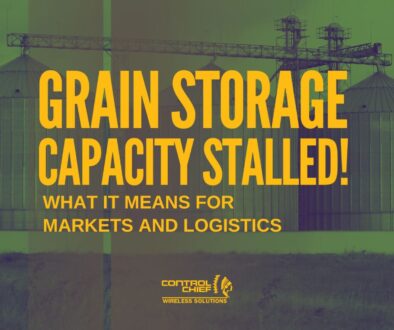Farm Bill Extension and Economic Aid for Farmers: What It Means for Agriculture in 2025

The U.S. Congress has recently passed an important extension of the Farm Bill, including $10 billion in one-time economic payments to support farmers who are facing significant challenges. This legislation, which narrowly avoided a government shutdown, provides crucial aid to the agricultural sector and ensures continued stability as lawmakers work on a long-term solution. The extension is a vital step in helping farmers navigate an unpredictable landscape, offering temporary relief to an industry under increasing financial pressure.
Why the Farm Bill Extension Matters
The Farm Bill is a critical piece of legislation that governs a range of agricultural policies, including risk management, crop insurance, and disaster relief. This bill is typically renegotiated every five years, but with the economic pressures farmers face, Congress passed a one-year extension of the existing Farm Bill. This ensures that essential programs remain intact and continue providing support to farmers in the short term.
Without this extension, key programs would have expired, potentially leading to disruptions in farming operations and higher food prices. By extending the bill through March 2025, Congress ensures that farmers can continue accessing crucial support while giving lawmakers more time to finalize a modernized version of the bill.
For more detailed information on the bill’s passage, you can read the full coverage in the Agriculture Dive article here.
Economic Aid for Farmers
One of the most important provisions of the bill is the $10 billion in one-time economic payments to farmers, aimed at offsetting income losses, particularly for those impacted by natural disasters and fluctuating market conditions. Zippy Duvall, president of the American Farm Bureau Federation, highlighted the importance of this aid, stating, “For many farmers, the disaster relief provided … will be the difference between planting for another year or going out of business.” These payments are crucial for helping farmers stay afloat and recover from financial setbacks caused by severe weather and other challenges.
In addition to the economic relief, the extension provides funding for disaster aid, addressing the ongoing challenges farmers face due to natural disasters like droughts, floods, and other extreme weather events. This disaster aid is vital for stabilizing the agricultural sector, enabling farmers to recover and continue production.
Agricultural Market Trends and Price Pressures: Insights from the Latest MarketAgTalk Video
A recent MarketAgTalk video covered the ongoing pressures on U.S. agriculture, which echo many of the concerns outlined in the Farm Bill extension. The video emphasized the rising costs farmers are facing, including labor and input prices, as well as unpredictable market conditions.
In the video, it was noted that many farmers are experiencing significantly lower profits due to these factors. With higher operating costs and commodity prices that aren’t keeping pace, farmers are finding it increasingly difficult to break even.
According to the video’s host, “Farmers are looking at much tighter margins in 2025. It’s not just about the cost of production—it’s about how long they can weather the storm.” The economic relief from the Farm Bill extension provides some breathing room but underscores the necessity for a more comprehensive, long-term solution. The video also pointed to the volatility in global markets, as U.S. farmers compete with international producers, further increasing financial uncertainty.
Farm Bureau’s Statement on the Extension
The American Farm Bureau Federation has praised Congress for passing this legislation, which they see as a necessary step to support farmers during difficult times. According to Zippy Duvall, “Farm Bureau thanks the House and the Senate for finding common ground and passing legislation that will keep the government open and help farmers who are struggling with natural disasters, high supply costs, and out-of-reach interest rates.” You can read the full statement from the American Farm Bureau Federation here.
While the bill extension provides short-term relief, the Farm Bureau is urging lawmakers to work on a more comprehensive, long-term solution to address the ongoing challenges facing farmers. Duvall added, “The economic and disaster assistance in the CR is a temporary fix to long-term challenges facing America’s farmers. The farm bill extension also offers a short reprieve, and gives lawmakers some breathing room to pass a modernized farm bill that will provide risk management support.”
Looking Toward 2025: Future Projections
As discussed in the MarketAgTalk video, the challenges facing the agricultural sector are multifaceted, with persistent pressures not just from weather-related disasters but also from market volatility and labor shortages. One point that stood out was the importance of diversifying revenue streams for farmers. The video highlighted that with traditional farming becoming less predictable, innovative solutions such as crop insurance, diversification, and even technological advancements in farming practices could help farmers stabilize their businesses in the long run.
“Farmers need to be proactive in managing risk, and that’s where programs like crop insurance, which have been extended in the Farm Bill, come into play,” said one of the experts featured in the video. This aligns with the message from the Farm Bureau, emphasizing that while short-term aid is essential, more comprehensive support systems need to be built for sustainable growth.
Challenges Facing Farmers and Looking Toward 2025
The agricultural industry is under significant pressure, with falling crop prices, livestock shortages, and rising production costs causing financial strain. Many farmers and agribusinesses have been struggling to stay afloat, and farm groups have been lobbying for a more robust Farm Bill to provide greater stability and certainty.
The extension offers temporary relief, but farmers and lawmakers alike are looking toward 2025 for a comprehensive, modernized Farm Bill. This updated legislation will be crucial for providing long-term support, including more robust risk management programs and a stable food supply. As Duvall noted, the passage of this extension provides lawmakers with some breathing room to craft a new five-year Farm Bill that will deliver certainty for farmers and the agricultural community.
For more details, read the full statement from the American Farm Bureau Federation here.
For more updates on the Farm Bill and other agricultural news, stay tuned to Control Chief Corporation’s website. We are committed to keeping our community informed about the policies and issues impacting the grain and agriculture industries.

Views: 10



